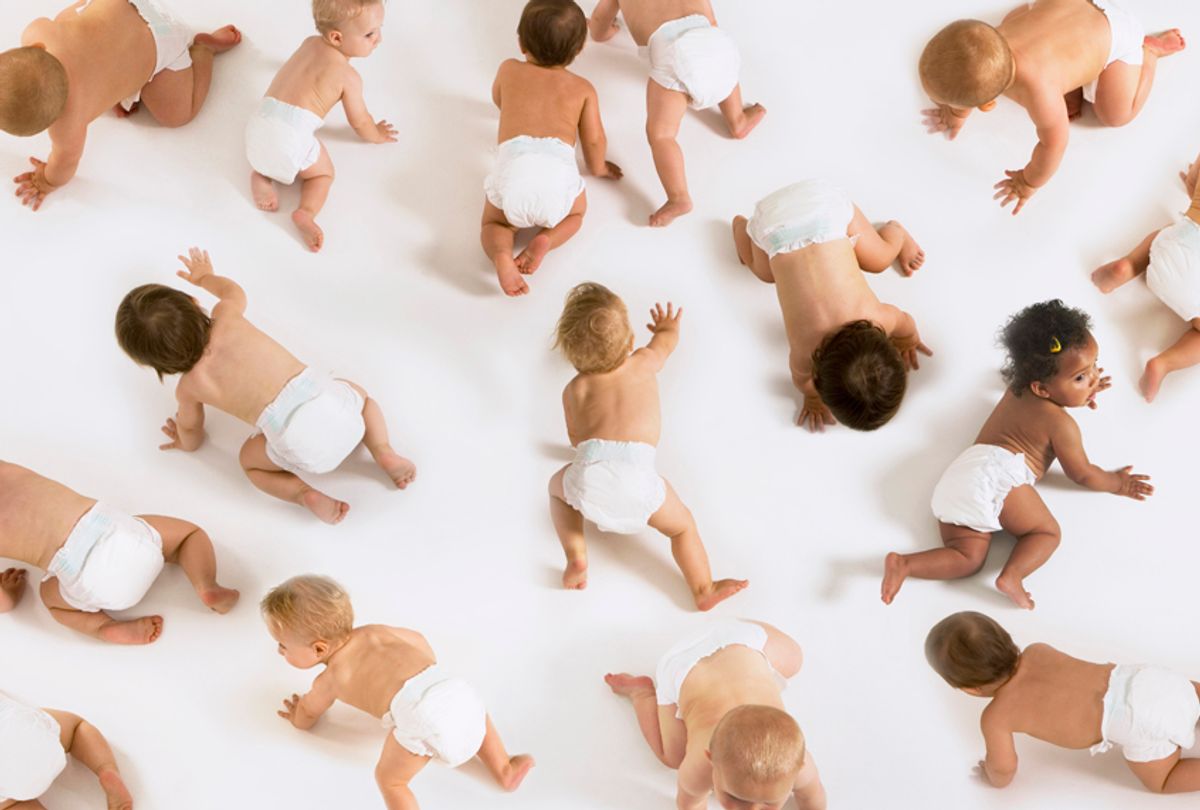Staying inside with one's partner for extended periods of time seems like a recipe for a baby boom. Indeed, there is some data that suggests certain blackouts and snowstorms have a positive effect on fertility.
But in the case of the pandemic, that seems not to have been the case. On Wednesday, the US Centers for Disease Control and Prevention's National Center for Health Statistics released data confirming that the birth rate dropped precipitously in late 2020, when most states were experiencing a major surge in coronavirus cases.
According to the new data, the birth rate in the U.S. decreased more than 6 percent in the last quarter of 2020 compared to the same time period in 2019. The data includes statistics from December 2020, which would have been when babies were born if they were conceived during the beginning of the pandemic.
Yet demographers are not sure if the decline has to do with the pandemic, or if the data is following a larger trend that has surfaced over the past couple of years. Indeed, last year marked the sixth year in a row births in America declined. The CDC said the U.S. birth rate is so low that the country is "below replacement levels" — which means more people are dying than being born.
"It's hard to separate out what would have been the decline potentially after the pandemic. . . . The birth rate is going down from previous quarters. It went down from 2018 to 2019 as well," said Anne Driscoll, a demographer/statistician at the National Center for Health Statistics. "The direction of the overall trend hasn't changed."
When looking deeper into that data, births declined by 3 percent from 2019 to 2020 for Hispanic women, and 4 percent for white women and Black women. Teen births decreased among under–17-year-olds by 6 percent, and 7 percent for 18- to 19-year-olds; those marked records lows.
As Salon previously reported, the loss of jobs, income, childcare services, and an overburdened healthcare system fighting a highly contagious coronavirus, were all reasons why families said they actively decided not to have children last year.
One of those is Sandra Henderson, a love and dating coach in Los Angeles, who recently decided not to have a child with her partner. She told Salon via email she was "worried" about raising a child in a moment of "chaos."
"For us, it is better to have a child when everything's back to normal and where everything and every place is a safe place to be," Henderson said. "Plus, we are both working from home now, and with lots of responsibilities we are currently juggling in our hands right now, we think we really can't do it for now."
Sarah Logan, editor of pet website The Bunny Hub, told Salon via email that she and her husband decided not to have another baby right now because of the pandemic.
"These difficult times are not the best time to have another family member," Logan said.
But deciding not to have children during the pandemic is a choice that not everyone has the privilege to make. For some who were pregnant and seeking abortions just as the pandemic hit, lockdown limited their access to providers and clinics as a handful of states made it it nearly impossible to terminate pregnancies. Historically, birth rates decline during an economic crisis, but many experts are wondering if fewer children — or no children at all — is the new American way.
"The birthrate is the lowest it's ever been," Kenneth Johnson, a demographer at the University of New Hampshire, told The New York Times. "At some point the question is going to be: The women who delayed having babies, are they ever going to have them? If they don't, that's a permanent notch in the American births structure."



Shares